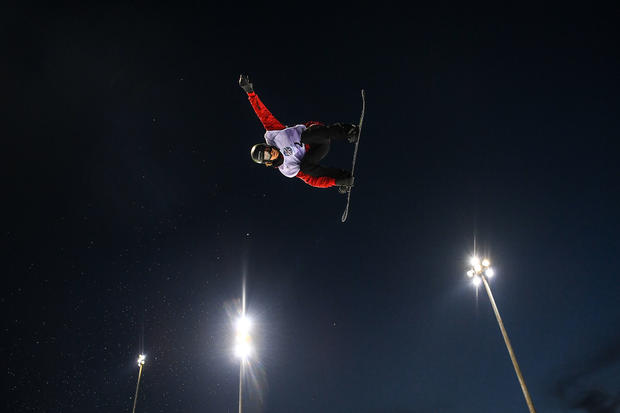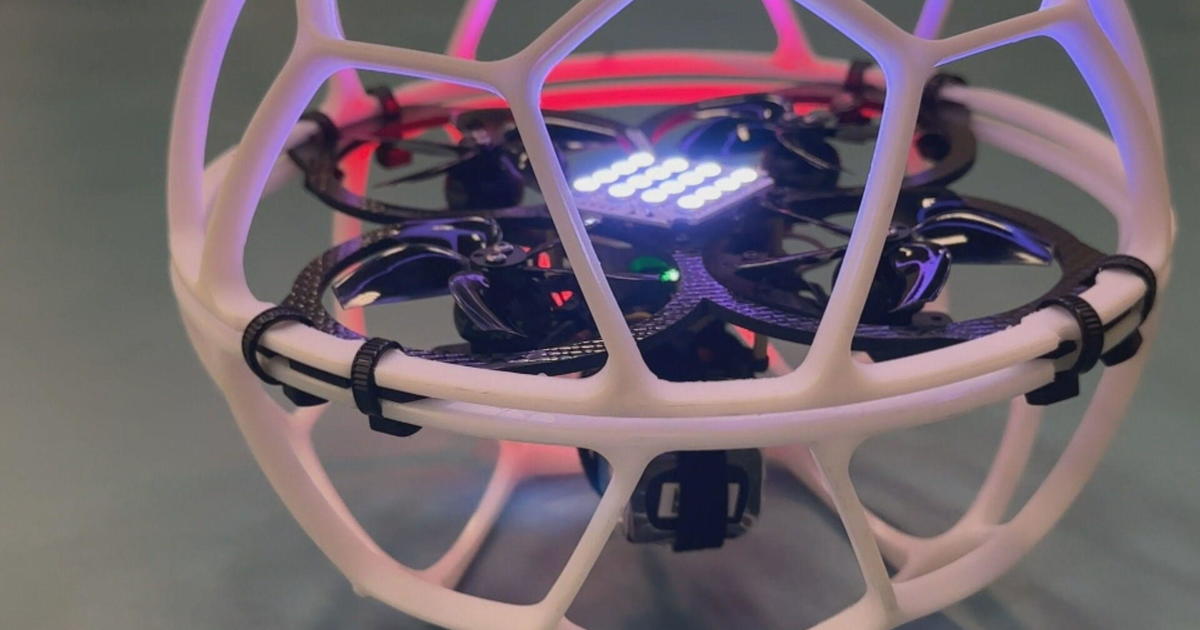I-Pod Injury A Stark Reminder Of Dangers Of Halfpipe
ASPEN, Colo. (AP) — It certainly wasn't the first time Iouri Podladtchikov had elicited gasps from a halfpipe crowd. This time, though, there was nothing to celebrate.
A mere two weeks before he was to defend his Olympic title, the snowboarder called I-Pod bashed his face against the halfpipe and skidded lifelessly to the bottom.
Though he was diagnosed with a broken nose and no brain or neck trauma, Sunday's injury at the Winter X Games still served as a stark reminder of the stakes involved in the beautiful, dangerous sport of professional snowboarding.
"There's no doubt it's a risky game, especially at the highest level," said coach Bud Keene, who worked with Shaun White during the previous three Olympics. "We watch people like Shaun and Ayumu (Hirano) execute amazing, acrobatic runs, flawlessly and seemingly effortlessly. The truth is, they're putting the pedal down, and when you're punching it, there's a certain amount of hope that things will work out.
"Modern halfpipe riding is a mixture of talent, strength and crazy."
Seemingly no big name in the sport, which has grown exponentially since it was introduced to the Olympics in 1998, is immune to torn-up knees, broken wrists, busted ankles and, in the worst-case scenario, trauma to the head and neck.
White is coming back from a gruesome injury that occurred when he slammed his face on the wall of a halfpipe in New Zealand last October. Eight years ago at Winter X, he slammed his head into the halfpipe during a training run but was still allowed to compete; he won on the way to his second Olympic title.
Not everyone escapes unharmed. The two most high-profile cases involved Kevin Pearce, who suffered a traumatic brain injury in a 2009 training accident, and halfpipe skier Sarah Burke, who was killed in a training accident in 2012.
I-Pod's wreck stands out not only because he is the defending Olympic champion who patented the Yolo Flip, which has become widely viewed as the toughest trick on the halfpipe, but because it came on a national telecast during the biggest contest this side of the Olympics, less than two weeks before the Pyeongchang Games are set to start.
Podladtchikov laid motionless at the bottom of the nearly silent halfpipe for about 20 minutes while medical personnel stabilized his neck and placed him into the sled for a trip to the hospital.
The rest of the riders, waiting at the top of the pipe, conceded it was jarring but said there was nothing to be gained by thinking about it too much.
"I tried to block it out," said Jake Pates, who was the next to go after I-Pod was taken off.
Remarkably, the level of risk and riding after the accident rose to levels nobody has seen in a halfpipe contest.
Hirano, the defending Olympic silver medalist, won after becoming the first rider to land back-to-back 1440-degree spins in a contest.
He was closely pursued by Australian Scotty James, who landed three double corks on his second-place run, capping it with a switch backside double cork 1260, a hugely difficult and technical trick that involves him both taking off and landing a two-flip jump while he's traveling backward.
In the aftermath of I-Pod's injury, the question became why would they put themselves at risk so close to the Olympics? The answer is partly in the history and importance of the X Games, an ESPN production that brought snowboarding to the masses and without which, the sport wouldn't have grown as it has.
"I had to do this," said Hirano, who won his first gold medal at the event. "I had to be here."
Not present, however, was White, who came to the X Games to practice but withdrew to rest up before heading to South Korea this weekend to start his training there.
It was a calculated move by the best-known figure in the sport, who is seeking to become the first three-time Olympic gold medalist in snowboarding.
"That's why if you see any top competitor not doing it, it's because they don't want to risk injury," said White's coach, 2002 Olympic bronze medalist JJ Thomas.
"This is a night event. Korea is a day event. The pipe is a lot harder (at night). It's big risk, big reward."
It figures to keep getting more difficult and, therefore, more dangerous.
The runs Hirano and James put down in Aspen, along with a massively difficult run that White used to score a 100 and win a qualifier in Snowmass a few weeks earlier, have set the bar for what it will take to win this Olympics.
"When you're as capable as they are, and work as hard at it as they do, then once the bell rings, those injuries sort of melt away," Keene said, "and everybody's going for it."
By EDDIE PELLS and PAT GRAHAM, AP Sports Writers
(© Copyright 2018 The Associated Press. All Rights Reserved. This material may not be published, broadcast, rewritten or redistributed.)




